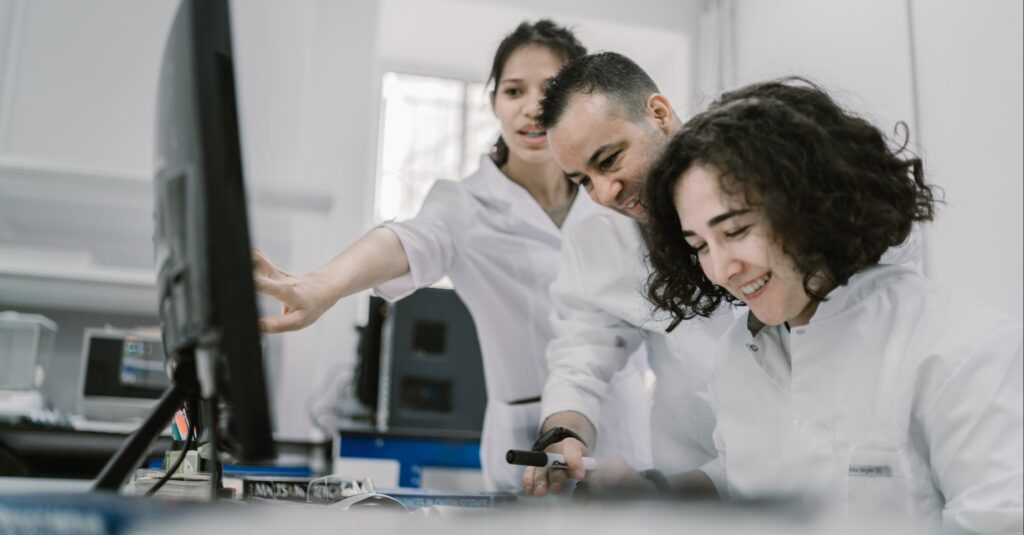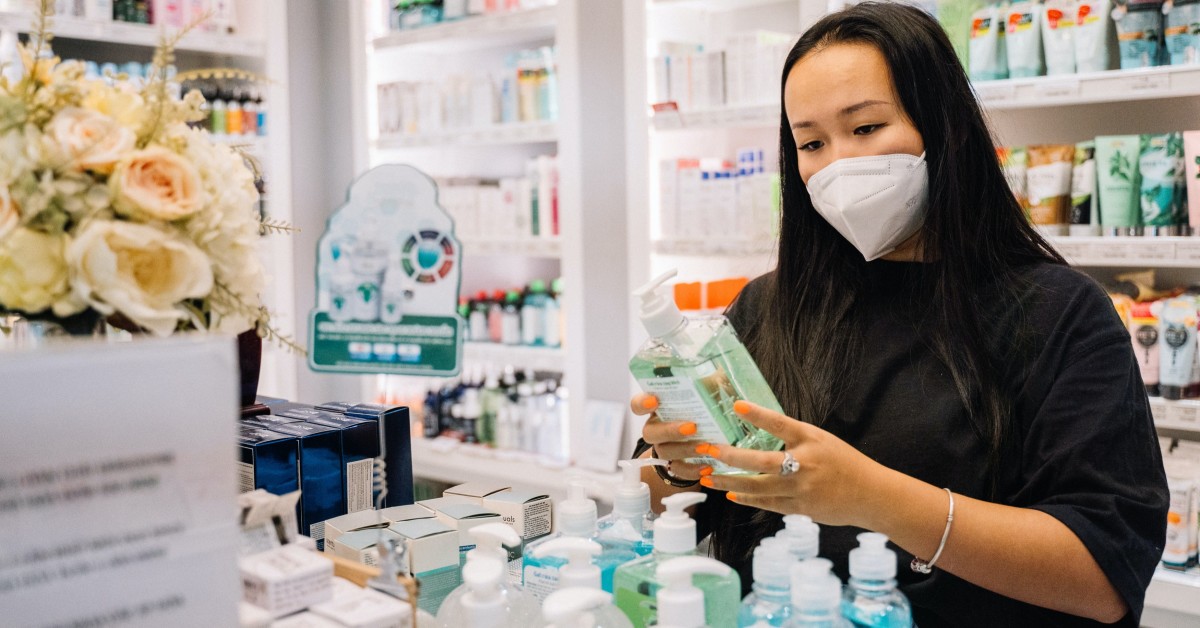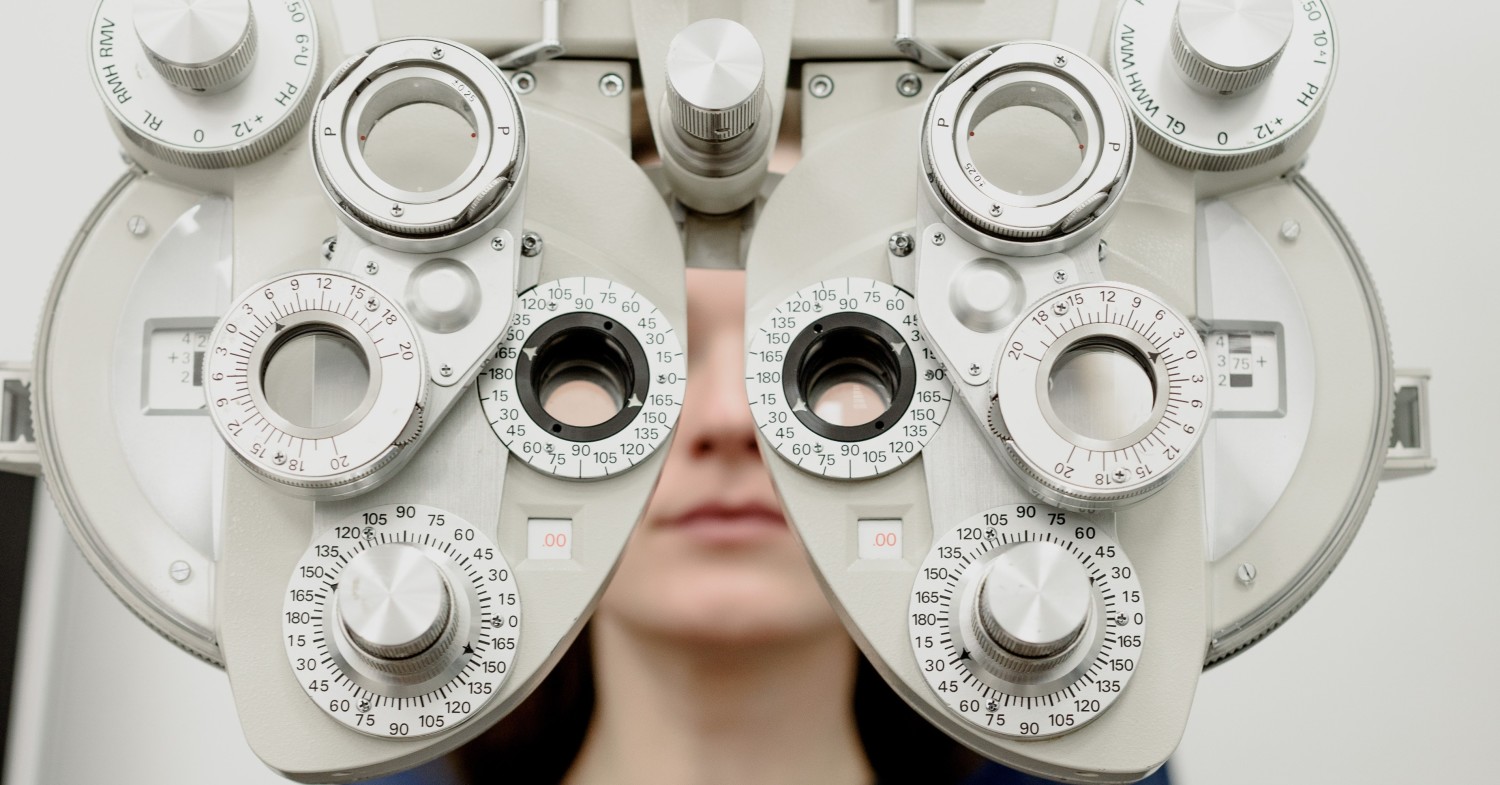
What is a 6-Year BS/PharmD Program?
Becoming a pharmacist requires a good deal of schooling: a [...]

As the Covid-19 pandemic has reminded us, pharmacists play a vital role in both providing healthcare (dispensing medication and drug info as well as conducting certain tests, like cholesterol screenings) and implementing public health initiatives (administering free, government-provided Covid-19 vaccines and treatments, like Paxlovid). With an aging population and public health concerns on the rise, the need for well-trained pharmacists is greater than ever.
Pharmacists must earn an advanced degree (more on that in a minute) to practice. They also need several critical skills. These include:
Some of the above-mentioned skills are innate; others are learned. Where does one cultivate the unique set of skills and knowledge required to become a pharmacist? This article answers the question what degree do you need to be a pharmacist, as well as:
To become a pharmacist, you need to earn a Doctor of Pharmacy (PharmD) degree from a program accredited by the Accreditation Council for Pharmacy Education (ACPE). The PharmD qualifies you not only to work as a pharmacist in a retail or medical setting but also to teach pharmacists, serve as a government regulator, or work in pharmaceutical industry research and manufacturing.
Other pharmacy roles don’t require the same credentials. Pharmacy technicians (or pharmacy techs), for instance, can work with a high school degree plus certification and a few years of related work experience. They perform some of the same tasks as pharmacists, including taking patient information, processing prescription requests and filling prescriptions, answering questions about medicine dosages, performing inventory management, reviewing patient records, processing insurance claims, and making payment clarifications.
A Doctor of Pharmacy degree is the professional credential required for all practicing pharmacists in the US. The Doctor of Pharmacy, which typically takes four years to complete, combines rigorous didactic instruction with a series of clinical rotations in specialty areas of practice. The PharmD degree program also prepares you for the licensure exams required before you can practice.
To be an eligible candidate for a pharmacy program, you will need to have completed prerequisite undergraduate coursework in science and math, typically acquired through a bachelor’s degree in science like chemistry or biology or two years of undergraduate pre-pharmacy prep classes.
At Butler University, for instance, this includes general chemistry with lab (two semesters), organic chemistry with lab (two semesters), cell biology, microbiology with lab, human anatomy and physiology (two semesters; lab not required), and calculus.
Admissions requirements vary by program, but in most instances applicants must submit transcripts, Pharmacy College Admission Test (PCAT) scores, personal statements, and letters of recommendation to their schools of choice through the standardized Pharmacy College Application Service application process.
If you’re interested in becoming a licensed pharmacist, begin planning early, maybe even before you receive your high school diploma. Aspiring pharmacists need to build a strong science background beginning in high school and continuing through their undergraduate coursework (some pharmacy programs accept applicants out of high school for a six-year course of study).
A Doctor of Pharmacy program involves four years of professional study—didactic instruction combined with clinical rotations that emphasize patient care and hands-on experience. Scholarships and loans can ease the cost of earning your degree.
First-year lectures and labs include classes in pharmaceutical science, including pharmacology, medicinal chemistry, and pharmacokinetics, and in biological sciences: biochemistry, genetics, microbiology, and immunology. Coursework also covers pharmacy law, interprofessional education, teamwork, hospital practice, pharmacoeconomics, pharmacy management, and public health.
Pharmacy rotations typically begin in a student’s second year of study. Clinical rotations are assigned in a variety of practice sites, allowing students to gain experience in specialized settings and focused specialties like pediatrics, acute care, cardiology, critical care, or oncology with healthcare professional preceptors/mentors. The final year ends with a capstone project and direct and non-direct patient care electives.
Pharmacy students can choose from many specializations, including pediatrics, geriatrics, critical care, infectious disease, surgery, neurology, psycho-pharmacy, nuclear pharmacy, and cardiology. Some postgraduate students may choose to continue training through an internship or residency program—before or after licensing—to gain experience in their chosen field.
The career path of a pharmacist includes a commitment to life-long learning and continuing education. You must pass several exams to pursue a state license and begin work.
After graduation, aspiring pharmacists must take the North American Pharmacist Licensure Exam (NAPLEX), which evaluates general practice knowledge acquired during the Doctor of Pharmacy program. Graduates and licensed pharmacists who want to practice in another state must also take the Multistate Pharmacy Jurisprudence Exam (MPJE), which assesses knowledge of regulations for specific states and jurisdictions.
There are a number of excellent in-person and online Doctor of Pharmacy programs in the US, including:
(Last Updated on February 26, 2024)
Questions or feedback? Email editor@noodle.com

Becoming a pharmacist requires a good deal of schooling: a [...]

Pharmacy is not only a science; it's also a business. [...]

The highest paying pharmacists jobs are in-store pharmacist (average salary: [...]

Earning a Doctor of Optometry typically takes four years, although [...]

In inpatient healthcare settings, hospital pharmacists help provide quality patient [...]
Categorized as: Medicine, Nursing & Healthcare